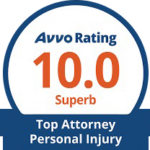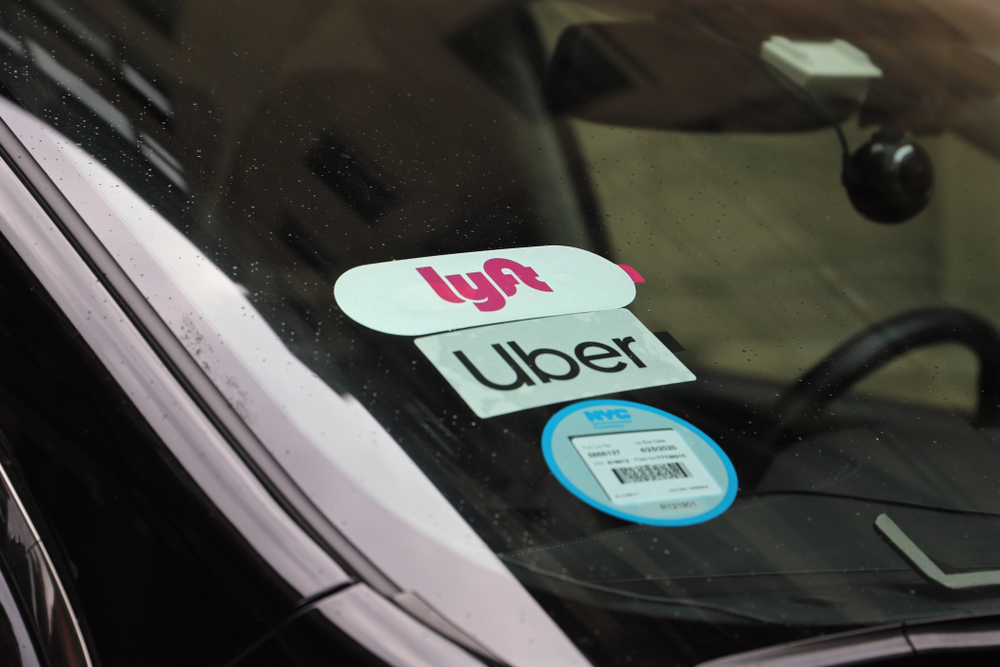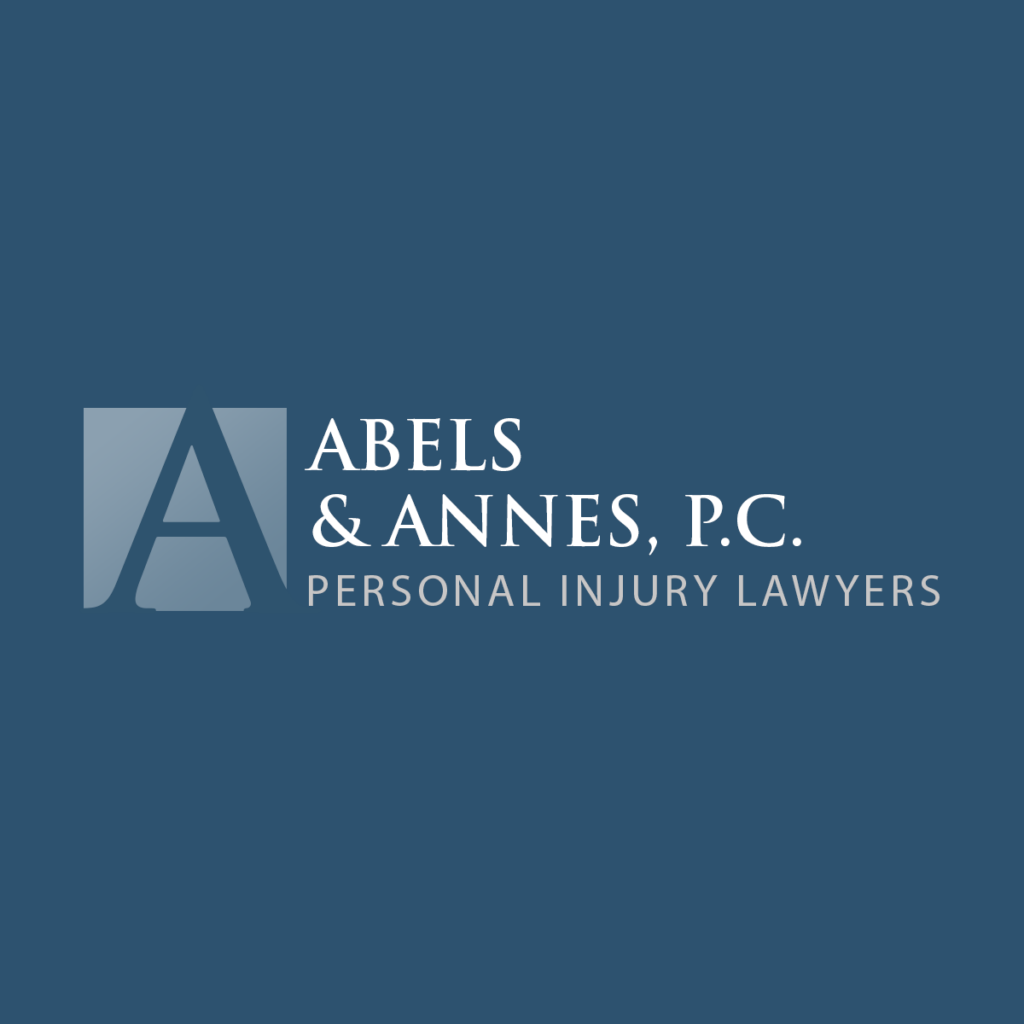Evanston, like many cities, has embraced the convenience of ridesharing services like Uber and Lyft. With just a few taps on a smartphone, you can summon a ride within minutes. But what happens when that convenience turns dangerous? Rideshare accidents are becoming increasingly common on Evanston’s bustling streets, often leaving victims with severe injuries, emotional distress, and mounting medical bills.
At a time when recovery should be your focus, dealing with the legal complexities of a rideshare accident can feel overwhelming. Whether you were a passenger, driver, or pedestrian, knowing how to navigate insurance claims, liability, and Illinois law can make all the difference in your case.
Take the first step: Call Abels & Annes, P.C. today at (224) 998-6007 for a free consultation. Let us fight for the compensation and justice you deserve.
Table of Contents
- Why Choose Abels & Annes, P.C.
- Compensation for Rideshare Accidents
- Where Do Rideshare Accidents Occur in Evanston?
- Understanding Ridesharing Accidents
- Fighting the Insurance Company After a Rideshare Accident
- What to Do After a Rideshare Accident
- Secure the Compensation You Deserve with Abels & Annes, P.C.
Why Choose Abels & Annes, P.C.

When it comes to rideshare accidents in Evanston, experience and local knowledge matter. Abels & Annes, P.C. has a proven track record of helping clients who’ve suffered injuries from Uber or Lyft accidents across Illinois, including a notable $42,000 settlement for a rideshare passenger in Chicago.
Our office is at 2822 Central St (#300), a short stroll from Central St. train station and near the Mitchell Museum of the American Indian.
What sets Abels & Annes, P.C. apart is our commitment to 24/7 availability and personalized service. When you call, you’ll speak directly to an attorney, not a case manager or paralegal. We pride ourselves on keeping clients informed and involved throughout the process.
Compensation for Rideshare Accidents
When you’re involved in a rideshare accident, understanding the compensation you’re entitled to can be complex. Illinois law, including statutes under the Illinois Compiled Statutes (ILCS), governs compensation claims, and our goal is to ensure you receive what you deserve.
Compensation in these cases typically falls into three categories: economic, non-economic, and punitive damages.
Economic Damages
These are tangible, out-of-pocket expenses directly tied to the accident, including:
- Medical expenses: All medical costs related to the accident, from hospital visits and surgeries to rehabilitation and medication, are covered.
- Lost wages: If you cannot work due to your injuries, you can claim compensation for both past and future lost income.
- Property damage: Any damage to personal property, such as the cost to repair or replace your vehicle or other belongings.
Non-Economic Damages
Non-economic damages account for the more intangible effects of an accident:
- Pain and suffering: Compensation for the physical pain endured as a result of the accident.
- Emotional distress: This can include anxiety, depression, or post-traumatic stress disorder (PTSD) stemming from the crash.
- Loss of enjoyment of life: If your injuries prevent you from engaging in activities you previously enjoyed, you may receive compensation for this.
Punitive Damages
Punitive damages are less common but the court may award them cases of extreme negligence or recklessness. These damages are meant to punish the responsible party and deter future misconduct.
In some cases, punitive damages may apply if the rideshare driver engaged in particularly dangerous behavior during the accident, such as driving under the influence.
Where Do Rideshare Accidents Occur in Evanston?
Rideshare accidents are common in busy cities like Evanston, where high traffic volume and bustling streets create opportunities for collisions.
Some of the most frequent locations for rideshare accidents in Evanston include:
- Dempster Street: As one of the city’s busiest thoroughfares, Dempster Street sees a high volume of both rideshare vehicles and local traffic, making it a hotspot for rear-end and intersection accidents.
- Sheridan Road: This scenic route, often congested near Northwestern University, presents risks, particularly during peak hours when students and commuters rely heavily on rideshare services.
Accidents are more likely in these areas due to several factors:
- Heavy traffic: Evanston’s central areas, particularly during rush hours, can increase the risk of collisions, especially when drivers are navigating unfamiliar streets or distracted by rideshare apps.
- Weather conditions: The harsh Illinois winters can make roads slick and dangerous, adding an additional layer of risk for Uber and Lyft drivers who may be working long hours in poor driving conditions.
Understanding Ridesharing Accidents

Rideshare accidents differ from typical car crashes in several important ways, primarily due to the unique nature of services like Uber and Lyft. In Evanston, where ridesharing is popular, various accidents occur frequently.
Common Rideshare Accident Types
- Rear-End Collisions: Rideshare drivers often find themselves in stop-and-go traffic while using navigation apps. This can lead to frequent rear-end collisions, especially in busy areas like Dempster Street or Ridge Avenue.
- Intersection Accidents: Evanston’s intersections, such as those along Main Street and Chicago Avenue, are often the site of rideshare accidents, especially during peak hours. Drivers may misjudge traffic signals or fail to yield to pedestrians.
- Sideswipe or Lane-Change Accidents: In densely populated areas, rideshare drivers constantly shift lanes to pick up and drop off passengers, which can result in sideswipe accidents if proper precautions aren’t taken.
- Pedestrian Accidents: Evanston’s pedestrian-heavy zones, particularly around Northwestern University, increase the chances of rideshare vehicles striking pedestrians, often due to distracted driving or miscommunication between the app and the driver.
Types of Injuries in Rideshare Accidents
The injuries sustained in these accidents vary from minor to severe and can affect passengers, drivers, and pedestrians alike.
Some common injuries include:
- Whiplash and soft tissue injuries: Typically seen in rear-end collisions, whiplash can lead to long-term pain and limited mobility.
- Head and brain injuries: Even minor head trauma can result in concussions or more severe traumatic brain injuries (TBI), leading to ongoing medical needs and rehabilitation.
- Spinal cord injuries: Spinal damage can occur in high-speed crashes or severe impact collisions, often resulting in paralysis or the need for surgery.
- Broken bones: Fractures, particularly in the arms, legs, or ribs, are common in collisions with a high force of impact.
Relevant Laws and Legal Concepts
The Illinois Vehicle Code (625 ILCS 5/) governs general motor vehicle accidents, including those involving rideshare drivers. However, rideshare companies like Uber and Lyft are subject to additional regulations regarding insurance and liability under the Transportation Network Providers Act (625 ILCS 57/).
This statute outlines the insurance coverage rideshare companies must provide during different phases of a trip:
- App Off: The driver’s personal insurance applies.
- App On, No Passenger: Limited coverage from the rideshare company is available.
- During a Ride: Full commercial insurance is active once a ride is accepted until the driver drops the passenger off.
These laws ensure that victims have multiple avenues to pursue compensation depending on the stage of the ride when the accident occurs.
Fighting the Insurance Company After a Rideshare Accident
Dealing with insurance companies after a rideshare accident can be one of the most challenging aspects of pursuing compensation. Insurance companies are businesses—they prioritize protecting their bottom line, which means they frequently offer settlements that are far lower than what victims actually deserve.
Common Insurance Company Tactics
Insurance adjusters are trained to minimize payouts, and they may use several tactics to reduce the compensation owed to you:
- Lowball Offers: Shortly after the accident, you may receive a quick settlement offer. This is often far below what your claim is worth and is intended to close the case before you fully understand the extent of your injuries.
- Delay Tactics: Insurance companies may drag out the claims process, hoping that you will become frustrated and accept a lower settlement out of desperation.
- Disputing Liability: Insurers may try to place part or all of the blame on you to reduce the payout. Under Illinois’ comparative fault law (735 ILCS 5/2-1116), if you are more than 50% at fault, your ability to recover compensation significantly decreases.
How Abels & Annes, P.C. Can Help
At Abels & Annes, P.C., we understand these tactics and are prepared to fight for your rights. Our team gathers all the necessary evidence—such as witness statements, police reports, and even data from the rideshare app itself—to build a strong case. We also handle all communications with the insurance companies, ensuring they don’t take advantage of you during a vulnerable time.
By working with experienced attorneys, you increase your chances of securing a fair settlement. If the insurance companies refuse to offer what your case is truly worth, we aren’t afraid to take the matter to court.
What to Do After a Rideshare Accident
After a rideshare accident, your actions in the days and weeks following the crash are crucial to the success of your case.
Beyond seeking medical care, which you’ve likely already done, there are other important steps you can take to help secure your legal claim. These steps can greatly improve your chances of obtaining fair compensation for your injuries and losses.
Follow your treatment plan
Insurance companies often look for any reason to reduce payouts, and one common tactic is to argue that a victim has failed to follow their doctor’s recommendations. Sticking to your treatment plan, attending follow-up appointments, and keeping a detailed record of your recovery can bolster your case.
Keep all receipts and records
Gather and maintain records of all expenses related to the accident, including medical bills, rehabilitation costs, travel expenses for doctor visits, and even costs for services you can no longer perform due to your injuries. These documents are crucial for calculating your economic damages.
Document everything
Keeping a journal of your physical and emotional condition post-accident can be valuable in proving non-economic damages, such as pain and suffering. Include details on how the injuries have impacted your daily life, both physically and emotionally.
Obtain a copy of the police report
The police report is one of the most important pieces of evidence in any accident case. You can request a copy from the Evanston Police Department.
Avoid making statements to insurance companies
Insurance adjusters may seem helpful, but their goal is often to get you to make statements that they can use to minimize your claim. It’s best to let your attorney handle all communications with insurance companies to avoid jeopardizing your case.
Stay off social media
Posting updates or comments about your accident or injuries on social media can inadvertently harm your case. Insurance companies may use anything you post to argue that your injuries are less severe than you claim.
Bring This Information to Abels & Annes, P.C.
The success of your case often hinges on the information you collect and present. By bringing this evidence to Abels & Annes, P.C., we can build a comprehensive case on your behalf. From negotiating with insurance companies to gathering expert testimony, our team makes your case as strong as possible.
Secure the Compensation You Deserve with Abels & Annes, P.C.

In the aftermath of a rideshare accident, the path to recovery can feel overwhelming, but you don’t have to navigate it alone. At Abels & Annes, P.C., we are committed to fighting for your rights, ensuring that you receive the compensation you deserve for your injuries, lost wages, and emotional suffering. Our firm has the experience and resources to take on the insurance companies, and we’re prepared to go to court if necessary to secure the best outcome for you.
Don’t settle for less than you’re entitled to. Call us today for your free consultation at (224) 998-6007, and let us help you reclaim control over your future.
Abels & Annes, P.C.
Address: 2822 Central St #300,
Evanston, IL 60201
Phone: (855) 529-2442